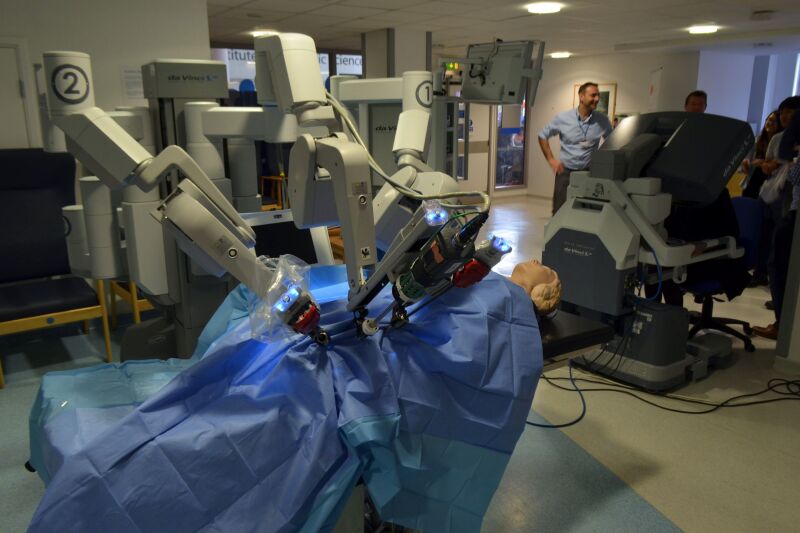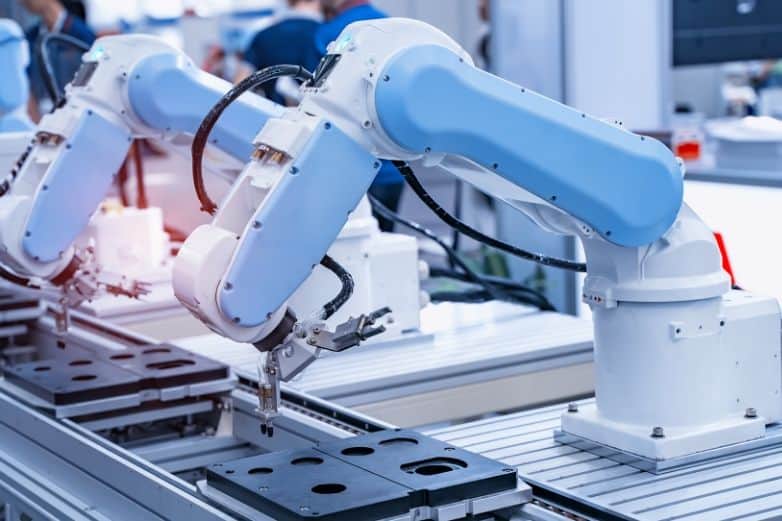In the realm of artificial intelligence and robotics, the intersection of science and technology is giving rise to a new era where machines are not just tools but intelligent entities that navigate and interact with the world around them. This fusion of deep science and robotics holds immense promise for various industries and applications, from healthcare and manufacturing to exploration and daily life.
1. Understanding Deep Science in Robotics
The Marriage of Deep Learning and Robotics
Deep science in robotics involves the integration of deep learning algorithms into robotic systems. Deep learning, a subset of artificial intelligence, enables machines to learn from vast amounts of data and make complex decisions. When applied to robotics, this technology empowers machines to perceive, adapt, and interact with their environment in a manner that mimics human cognitive processes.
2. Robots in Healthcare

Assisting Surgeons and Enhancing Patient Care
Deep science has paved the way for advanced robotic systems in healthcare. Surgical robots, equipped with deep learning algorithms, can assist surgeons with precision and accuracy, leading to minimally invasive procedures. Additionally, robots are being developed to provide companionship and support for patients, particularly the elderly, offering a new dimension to healthcare services.
3. Manufacturing and Automation

Efficiency and Precision in Production
In manufacturing, the marriage of deep science and robotics has revolutionized automation. Robots equipped with deep learning algorithms can adapt to changing production requirements, optimize workflows, and enhance precision in tasks such as assembly and quality control. This synergy boosts efficiency and reduces production costs for industries.
4. Autonomous Vehicles and Exploration

Navigating Uncharted Territories
Deep science plays a crucial role in the development of autonomous vehicles and exploration robots. These machines use advanced algorithms to navigate unpredictable terrains, make split-second decisions, and adapt to dynamic environments. From self-driving cars to exploration rovers on distant planets, deep science-enabled robotics is expanding the horizons of what machines can achieve.
5. Daily Life and Human-Robot Interaction

Intelligent Assistants and Companions
In our daily lives, deep science in robotics is giving rise to intelligent assistants and companions. Smart home devices, equipped with deep learning capabilities, can understand and respond to human commands, learning user preferences over time. Social robots designed for companionship are becoming more sophisticated, providing emotional support and assistance.
6. Challenges and Ethical Considerations
Navigating the Complex Landscape
As deep science and robotics advance, challenges and ethical considerations emerge. Ensuring the safety and security of intelligent machines, addressing potential biases in algorithms, and defining ethical guidelines for human-robot interactions become paramount. The scientific community grapples with these issues to ensure the responsible development and deployment of robotic technologies.
7. Future Prospects and Innovations
Towards a New Era of Possibilities
The fusion of deep science and robotics opens the door to a multitude of possibilities. From robots with enhanced problem-solving abilities to intelligent systems that can adapt to unforeseen challenges, the future holds innovations that will redefine how we interact with machines. The ongoing research and development in this field promise a future where robots are not just tools but valuable collaborators.
Conclusion
Deep science in robotics represents a convergence of cutting-edge technologies that are reshaping our relationship with machines. From the operating room to manufacturing floors and beyond, intelligent robots are becoming integral parts of various industries. As the field continues to evolve, striking a balance between innovation, ethics, and safety will be crucial to harness the full potential of deep science-enabled robotics.
In conclusion, as robots meet the world with the power of deep science, we embark on a transformative journey where intelligent machines become indispensable partners in our quest for progress and exploration.
FAQs
Q. What is deep science in the context of robotics?
Ans: Deep science in robotics involves integrating deep learning algorithms into robotic systems. Deep learning, a subset of artificial intelligence, enables machines to learn from data, perceive their environment, and make complex decisions, leading to more intelligent and adaptive robots.
Q. How does deep science impact healthcare robotics?
Ans: In healthcare, deep science enhances robotic systems, particularly surgical robots. These robots can assist surgeons with precision, enabling minimally invasive procedures. Additionally, robots with deep learning capabilities are developed to provide companionship and support for patients.
Q. What role does deep science play in manufacturing and automation?
Ans: Deep science in manufacturing and automation revolutionizes processes by enabling robots to adapt to changing production requirements, optimize workflows, and enhance precision in tasks like assembly and quality control. This synergy boosts efficiency and reduces production costs.
Q. How does deep science contribute to the development of autonomous vehicles and exploration robots?
Ans: Deep science enables autonomous vehicles and exploration robots to navigate unpredictable terrains, make split-second decisions, and adapt to dynamic environments. This technology is crucial in the development of self-driving cars and exploration rovers for distant planets.
Q. What are the ethical considerations in the fusion of deep science and robotics?
Ans: Ethical considerations include ensuring the safety and security of intelligent machines, addressing biases in algorithms, and defining ethical guidelines for human-robot interactions. The scientific community is actively addressing these issues to ensure responsible development and deployment of robotic technologies.









